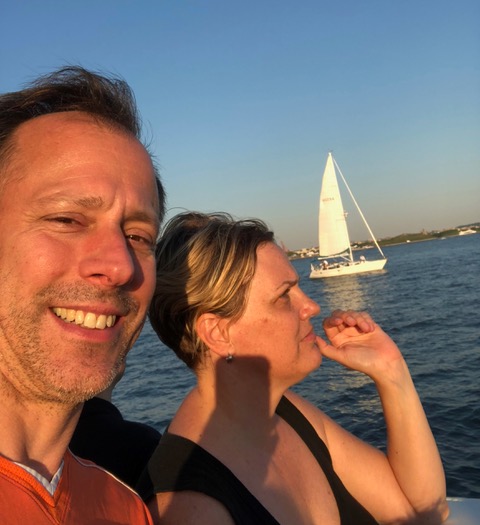
I grew up in Hillsdale, Michigan. It’s a town of just 8,000 people, but it was the biggest community for 20 miles in any direction. It was great. There was a big patch of timber behind my house, and down the hill were swamps and an arboretum. My friends and I spent days in these places, coming home for food and sleep, but not much more. When we were older, we worked for DeKalb, the big seed company from Illinois. There were seed corn plots all around us, but to make sure the hybridization was 99% pure, well, obviously, 99% of the maternal plants had to be un-maled, which meant teenagers were out in the cornfields manually extracting the tassle from the top of the stalk. Just grab it and yank up. The first two or three hundred are pretty easy, but after that, lifting your hands above your head for a couple more hours gets pretty hard. Rural bliss.

Six years after I left Hillsdale for college, I’d earned degrees in political science and economics, and after a short stint in New York, I joined the US Treasury Department. There I helped countries from Laos to Morocco. The questions countries would ask were head spinning. How do we get rid of our domestic currency, which is too much trouble? Should we build power plants or transmission lines? How can we raise more tax? Are we bankrupt?
It was a great gig, and I saw the world. Eventually, however, I started to get yelled at. Some of the projects weren’t fully optimized. Social conflicts exacerbated. Corruption in contracting. Rare species going extinct. Of course I heard a lot of good points. But I have to be honest. A lot of times I felt like endless meetings with local stakeholders, their US NGO representatives, and Congressional staff were a regrettable inconvenience as a few smart people in the local Finance Ministry and I were trying our best to deliver economic development.
Eventually, I changed my mind. I’m sure change comes gradually, but the moment of decision came on a bus ride in Africa. I was crossing the savannahs, headed to a good meeting, but I was really looking forward to the planned side meeting with the safari animals. Win-win! But the road was going directly through the rangeland. And the community living nearby told me that the animals were suffering, dying on the road or avoiding the road, and therefore unable to forage according to the weather. They told me without normal animal behaviors, the plant composition was changing too. It was super insightful, ecosystem-level analysis from people who were barely educated but knew their land. I knew that the road was located to save a couple million dollars. That really bothered me. I began to see things a little differently.
Agriculture is the biggest driver of land use change globally. Whether it’s soy in Brazil, oil palm in Indonesia, or elsewhere, everywhere the recipe is the same: take the wild lands bit by bit, sell the timber, get a single crop season out of the place, and get out of there. If you’re lucky and the local officials flexible, maybe you’ll end up with title to the land! Africa is hardly better, but the trees are less valuable, so that slows things down a bit.
In addition to fragmenting ecosystems and displacing local populations, this agriculture is really low productivity, super risky (like, gun fight-risky in some places), and essentially temporary. It’s literally burn and churn. There’s very little financial sustainability at the acre-by-acre level
That’s what gives me hope. I’m certain these wasteful processes can be outcompeted economically. If markets for food, fuel and fiber are supplied by better processes, cheaper processes, the incentive to go into the wilderness will diminish. There are lot of ways to compete in that fight, and the world needs an all-of-the-above approach, but personally, I don’t think it’s going to be an incremental process. The world needs step change in agricultural productivity. Agriculture needs new technology and rapid deployment.
That’s what led me to studying biology at UMD.I hope modern genetics and fundamental biology can produce to the crops we need. Working at a land-grant university puts me closer to the agriculturalists who do the real heavy lifting. When I finish up my PhD, hopefully later this year, I want to jump into the competition. And while I’ve had an unconventional path that brought me to the study of biology, it still feels linear and progressive in a lot of ways—even though I just might find myself circling all the way back to doing genetics in a corn field. Just where I started.
